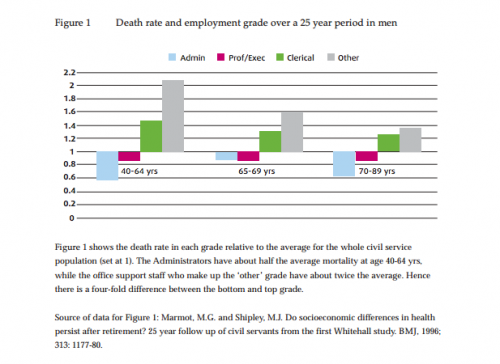Thomas Piketty’s Capital in the 21st Century argues that built into capitalism is a dynamic that generates increasing economic inequality. Here’s Paul Krugman’s one sentence summary:
The big idea of Capital in the Twenty-First Century is that we haven’t just gone back to nineteenth-century levels of income inequality, we’re also on a path back to “patrimonial capitalism,” in which the commanding heights of the economy are controlled not by talented individuals but by family dynasties.
I’m not qualified to evaluate whether Piketty is right. But I can tell you that his book is accessible and indeed compelling reading for a non-economist.
I just want to note that Piketty’s claim is of interest to those who care about health, because there is compelling evidence that social inequality is bad for those on the bottom. The best point of entry here is the work of Michael Marmot. In a series of studies, Marmot found that subordinates in the social hierarchy get sick and die younger. See, for example, the data below from his Whitehall II study.
So if Marmot’s right, then Piketty’s warning about an increasingly unequal future is of great concern.
The good news is that even if Piketty’s right, social inequality is not inevitable. We can reduce inequality — and possibly benefit health — through the redistribution of wealth and the achievement of substantive equality of opportunity.
We have discussed inequality and the relationship between inequality and health on TIE here, here, and here.



